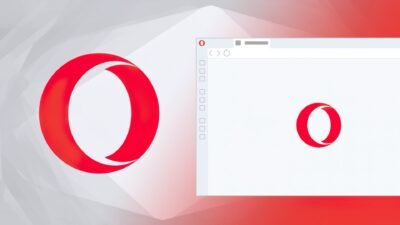Get More Out Of Your Money By Utilizing Personal Financial Software

Especially these days, a lot of people feel stressed. Even with or without a pandemic, there’s one thing that always causes issues: money. Worrying about not having enough of it takes a big toll. Concerns about not using money the right way also lead to anxiety.
Here’s the deal, either you’re in charge of your money, or it’s in charge of you. If you stress about finances, there’s a viable solution to help in the form of software. With the right program, you can get more out of your money.
Regardless if you’re looking for a way to track your finances, budget for your kid’s college, or even identify any potential spending risk, you can’t beat what personal finance software provides.
A Brief Introduction
Every day, you probably use something similar to personal finance software, your vehicle’s dashboard. The various gauges tell you all kinds of things like running low on gas, how fast you’re traveling, and whether you need to have the oil changed. This software works in much the same way, except it focuses on money.
Personal finance software makes it easy to track what money you have coming in versus going out. However, it also stays on top of investments, savings accounts, retirement plans, and more. The right software will even monitor your credit score.
Improving Your Finances
If you’ve ever wondered how people get and stay wealthy, well, now you know. They rely on personal finance software. Saving pennies as a child is easy, but as an adult, it becomes much more challenging. After all, you have a long list of financial responsibilities to manage.

Because this software simplifies things, you can achieve your financial goals and experience less stress. A top-rated software program benefits anyone who uses it, even Certified Financial Planners. Most of the programs available are super easy to use and more reliable than tracking money on a standard spreadsheet.
Personal Finance Software Categories
Overall, this type of software falls into one of two categories – money management and tax preparation. Although they can both help you with your finances, they work in unique ways.
- – For many people, when it comes to money nothing is more important than making sure they don’t run out of it in retirement. More and more people are handling retirement planning themselves using planning software such as WealthTrace. This retirement planning application shows people, in a detailed fashion, what financial shape they will be in from today until the day they are expected to die.
- – With this, you can view your financial health. That includes forecasting savings and expenses, paying bills, watching cash flow, reducing debt, tracking investments, and more. A lot of people use Mint to track their financial health and especially their budget.
- – This pertains to anything having to do with your taxes, whether estate planning, income taxes, IRS rules, refund checks, and so on. TurboTax is just one example of software the people trust for tax preparation purposes.
Perfect Timing
The key is to identify when personal finance software will benefit you the most. For a better understanding of this, consider the following four situations.
Payment Automation
Today, people are busier than ever. With personal finance software, you can schedule payments for the majority of your bills. This involves online transfers that occur automatically and go directly to the source.
Along with added convenience, this is an excellent way to prevent an oversight that would make a payment late and result in an added fee. You can always change dates, amounts, and bank information if needed.
Multiple Accounts
A lot of people have more than one checking and savings account. Then when you add in 401(k)s, retirement plans, IRAs, money market accounts, and credit cards, things often become messy.
With personal finance software, you set up each account’s basic information. Then you can quickly import financial data for each one as it’s available. This saves a lot of time and prevents mistakes.
Setting Goals
Most everyone has a financial goal. Sometimes, that consists of putting money aside for a lavish vacation, while other times, it’s paying off debt. Regardless if you have a short- or long-term goal, personal finance software will help you achieve it. As a perfect example, if you spend more than established in your budget, the program will notify you.
Streamlining the Budget
People who use personal finance software love that it tracks all money coming in and going out. So, you can look at your finances at a high level or have the software generate graphs. Overall, it makes managing all your money so much easier.
Getting Started
You want to identify the personal finance software that matches your wants and needs the best. Whether it’s Quicken, AceMoney, or something different, there are plenty of excellent options available.
When selecting software, remember that some cost nothing to use while others charge a nominal monthly fee. Whatever software you choose needs to do what you want it to do, and it should be scalable. That means if your money changes and grows, it can still accommodate. That way, you don’t have to switch to a different program. Also, select software that can manage the number of accounts you have since some have a capped limit.
Personal finance software should provide several services. That includes monitoring your accounts, providing you with tips and warnings, and allowing you to set up automatic payments. Ultimately, you want a comprehensive program but also one that’s easy to learn and use.
The Bottom Line
An efficient and effective way to stay on top of your money is by using a personal finance software program. Be sure to prioritize the functions based on your specific needs. Then look at different brands, read other users’ reviews, and select what you can afford. Overall, this is an excellent way to manage your money, both short- and long-term.
Digital marketing enthusiast and industry professional in Digital technologies, Technology News, Mobile phones, software, gadgets with vast experience in the tech industry, I have a keen interest in technology, News breaking.









